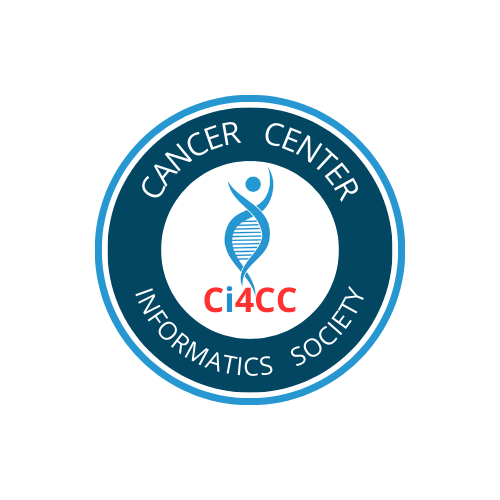NCI Cancer Genomics Cloud Pilots
CURRENT NEEDS IN CANCER RESEARCH
The challenges posed by the need to disseminate, manage, and interpret large, multi-scale data pervade efforts to advance understanding of cancer biology and apply that knowledge in the clinic. For several years, the volume of data routinely generated by high-throughput research technologies has grown exponentially. The storage, transmission, and analysis of these data have become too costly for individual laboratories and most small to medium research organizations to support. For optimal progress to occur, access to large, valuable data collections and advanced computational capacity must be readily available to the widest possible audience.
On April 7, 2013, Dr. Harold Varmus and other members of the Institute's senior leadership issued a letter to NCI grantees seeking input on these and other computational challenges they encounter on an almost daily basis. Dr. Varmus stated that the NCI, as part of its ongoing investigations into next-generation computational capabilities to serve the research community, has begun exploring the possibility of creating one or more public "cancer knowledge clouds" in which data repositories would be co-located with advanced computing resources, thereby enabling researchers to bring their analytical tools and methods to the data. Reactions to this informal request for information were generally positive, with respondents focusing on six general themes: data access; computing capacity and infrastructure; data interoperability; training; usability; and governance.
Based in part on this information, Dr. George Komatsoulis, then interim director of the Center for Biomedical Informatics and Information Technology (CBIIT), which administers the National Cancer Informatics Program (NCIP), led the creation of a concept document describing a project to develop up to three cancer genomics cloud pilots for review by the cancer-research community. Dr. Komatsoulispresented the concept (time reference 05:58:00) at a joint meeting of the NCI Board of Scientific Advisors (BSA) and the National Cancer Advisory Board (NCAB) on June 24, 2013, where it received unanimous approval.
Soon after the concept was approved, NCI issued a Research and Development Sources Sought Notice providing a synopsis of requirements and asking respondents to submit capability statements. The deadline for submissions was July 24, 2013.
Simultaneously with beginning the procurement process, the NCIP established an IdeaScale site on August 8, 2013 to allow the community to contribute critical use cases that the cloud pilots will need to support. For more detailed information, consult the officialRequest for Information: IdeaScale for Cancer Genomics Cloud Pilots on FedBizOpps. A recent posting on the NCI Biomedical Informatics Blog explains the rationale behind the decision to use IdeaScale.
The IdeaScale site will be locked from additional input to coincide with the release of the BAA. It will remain open, however, as a reference for potential offerors.
THE CONTRACTING AND AWARD PROCESS
In preparation for the BAA, the NCI posted a pre-solicitation notice on November 25, 2013, on FedBizOpps that announced the online pre-proposal conference described above in the gray box.
The BAA is the specific contract mechanism that will support development of the cancer genomics cloud pilots. The project will go through three phases:
- Design
- Implementation
- Evaluation
The organizations selected to develop the clouds will be expected to collaborate with each other and with the groups managing the NCI Center for Cancer Genomics (CCG) Data Coordinating Center. NCIP activities are being conducted in concert with the CCG Data Coordinating Center, which will provide an authoritative public data set for use in the cloud pilots. Interchange among the organizations involved will help ensure adherence to a common set of data elements and vocabularies among the cloud pilots in support of operations that may span cloud implementations.
Areas of Focus
The research and development activities sponsored by the NCIP span four areas: Cancer Biology and Genomics, Clinical and Translational Research, Computational Genomics Research, and Semantic Infrastructure and Interoperability.
CANCER BIOLOGY AND GENOMICS
Multi-dimensional characterization data sets that compare tumor and normal tissue at the molecular level are providing unprecedented detail about the molecular alterations that lead to cancer. The ability to manage and analyze these data, and to integrate the results with the corresponding biological and clinical information, is providing new directions for developing treatment strategies that target the specific molecular changes in a patient’s disease. To provide support, CBIIT informatics priorities in the areas of cancer biology and genomics include
- Management and analysis of primary data sets for cancer biology and genomics
- Aggregation of translational research data and annotations
- Dissemination and support for cancer biology and genomics data, tools, and standards.
- Application of computational methods in support of knowledge discovery
CLINICAL AND TRANSLATIONAL RESEARCH
The Clinical and Translational Research domain provides targeted bioinformatics capabilities facilitating interoperability, collaboration, and integration across applications. Relevant applications are also designed to ease clinical trial reporting burdens through the consolidation of mechanisms for reporting and harmonizing implementable data standards for next-generation study designs. Specific project areas include the following:
- Clinical Research Management, Adaptive Trial Management, and Enterprise Trial Reporting comprise centralized research subject management, centralized study data management (including accrual data), adverse-event reporting, next-generation clinical trials management, and enterprise portfolio management.
- Clinical Research Data Modeling and Case Report Form Harmonization provide the semantic tools needed to integrate and interoperate data across multiple systems and entities at both NCI and the extramural and pharmacologic communities.
- Imaging and Biospecimen Data Management systems address the need to manage large sets of clinical and preclinical research data in the form of diagnostic images and biospecimens. Both types of data sets require the association of multiple metadata elements with individual and across-study-specific images and specimens in order to allow researchers to share and manage not only research information but also valuable specimens that may be reused beyond the initial research.
- Clinical Research Regulatory Management addresses NCI’s desire to streamline the management of regulatory requirements in order to accelerate the initiation of clinical trials research.
COMPUTATIONAL GENOMICS RESEARCH
Current biomedical informatics technologies permit the genome-wide generation of multidimensional molecular data sets that researchers can use to assess copy number alterations, nucleotide substitutions, insertions or deletions, rearrangements, and epigenetic changes. Furthermore, next-generation sequencing (NGS) provides researchers with complete gene and genome sequences.
The CBIIT Computational Genomics Research Group (CCRG) creates analytical methods and applications designed to integrate, display, and interpret such diverse, systems-wide data sets. The goal is to translate genetic and genomic observations into insights concerning the biology of human cancers, including disease etiology. As part of its collaborative development efforts, the CCRG has provided tools, analytical capacity, and bioinformatics support to researchers participating in The Cancer Genome Atlas (TCGA) and Therapeutically Applicable Research to Generate Effective Treatments (TARGET) projects as well as to investigators in the intramural NCI community.
INTEROPERABILITY AND SEMANTICS
Through a semantic infrastructure and an interoperability framework, CBIIT supports multidisciplinary science by enabling data integration across different specialties and institutions. The semantic infrastructure provides standard vocabularies, common data elements, clinical case-report forms, data models, and definitions. The interoperability framework follows a widely used approach of employing services that are independent of any particular information-technology platform.
Share this Article with others





